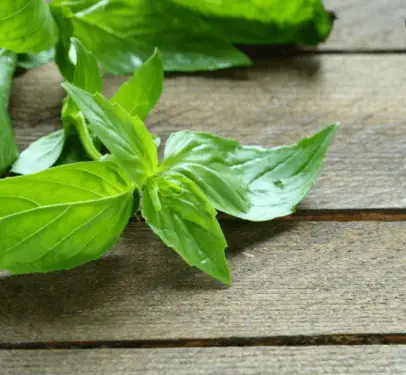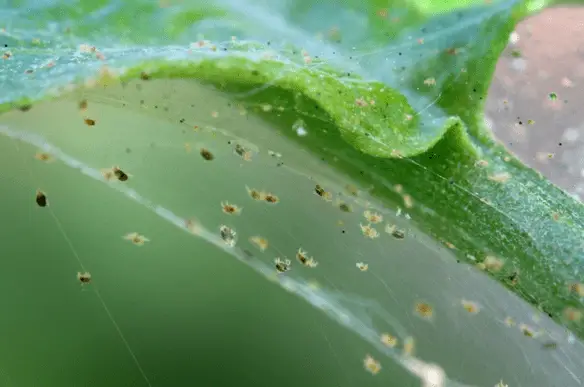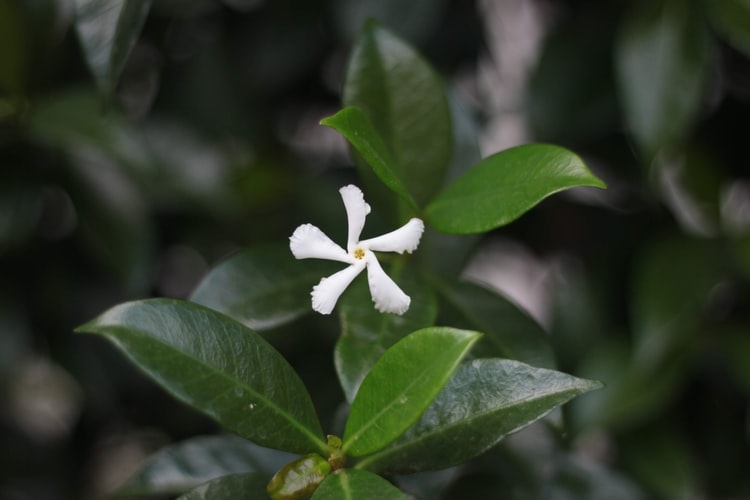Lemon basil is a popular herb that’s easy to grow and adds a refreshing citrusy flavor to many dishes. However, yellowing leaves can be a common problem for lemon basil plants. In this article, we’ll explore the common causes of lemon basil leaves turning yellow and provide tips on how to fix and prevent the issue.

Why Are Your Lemon Basil Leaves Turning Yellow
Before we discuss the reasons why lemon basil leaves turn yellow, I think we, first, need to know the perfect conditions to grow this amazing plant and how to properly take care of it. If you want to learn about it, I wrote an article on How to Harvest & Care for Lemon Basil, you can check it out if you want to.
Next, let’s move to the most common causes of the yellowing of the leaves.
The most common causes of yellow leaves on lemon basil
1. Watering is one of the main causes of yellow lemon basil leaves
One of the most common causes of yellowing lemon basil leaves is overwatering. This herb prefers well-draining soil, and overwatering can cause the roots to become waterlogged, leading to yellowing leaves. To fix this issue, ensure that the soil is well-draining and that you’re not watering your plant too frequently. This issue is put in my dictionary as plant cancer as it kills the plant very fast by causing root rot.
But, you can still save it! Don’t lose hope yet. If you’re growing your plant in a pot, you can do an easy couple of things. First, if the soil is highly saturated, try to replace it with a new fresh soil. Make sure you don’t hurt any main roots during this step. After that, avoid watering it for a couple of days to allow it to breathe again.
Another thing you can do if you face this problem is to place your container in a sunny spot for a few hours until you can notice the top inch of the soil is dry.
Advice: Always use containers with drainage holes at the bottom. For all types of plants.
Underwatering can also cause yellowing leaves, as the plant may not be receiving enough moisture to sustain healthy growth. To fix this issue, water your lemon basil thoroughly and consistently, ensuring that the soil is moist but not waterlogged. You can tell your plant needs watering when the top inch of the soil is completely dry.
2. Pests
Pests are another factor in yellowing lemon basil leaves. Aphids and mites are one of the most common pests that can damage the plant and cause yellowing and wilting leaves. You can prevent and control pest infestations using insecticidal soaps or organic remedies like neem oil.
Neem oil is very beneficial for gardening, I wrote an entire article explaining Neem Tree Benefits- Why You Should Start Planting Neem Trees. You can read all about it if you want just by clicking here. 🙂
3. Lack of nutrients
Nutrients are essential for all plants. Some plants are more sensitive than others and can get sick when are not fed properly. Lemon basil is one that needs to be fertilized each now and then, therefore, a possible cause of yellowing lemon basil leaves can be nutrient deficiencies.
Fertilize your plant regularly with a balanced fertilizer to promote healthy growth and prevent yellowing leaves. Be sure to follow the instructions on your fertilizer package and avoid over-fertilizing, which can also cause damage.
4. Environmental Factors
Environmental factors like temperature and humidity can also play a role in yellowing lemon basil leaves. If the plant is exposed to extreme temperatures or dry air, it may struggle to maintain healthy growth. Be sure to provide your lemon basil with a stable environment and avoid exposing it to harsh conditions.
In conclusion, yellowing lemon basil leaves can be a frustrating problem, but it’s one that can be easily solved with proper care and attention. By understanding the common causes of yellowing leaves and following these expert tips and remedies, you can revive your lemon basil plant and ensure that it thrives in the future. So don’t let yellowing leaves discourage you – with a little effort, you can enjoy healthy, vibrant lemon basil all year long!
For more gardening tips, make sure to subscribe to our free weekly newsletter and follow us on our socials:




